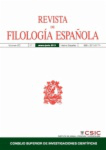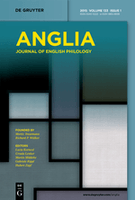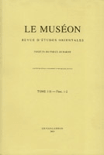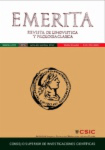
AEVUM-RASSEGNA DI SCIENZE STORICHE LINGUISTICHE E FILOLOGICHE
Scope & Guideline
Exploring the Nexus of Language and Culture.
Introduction
Aims and Scopes
- Historical Linguistics:
The journal publishes research on the evolution of languages over time, examining how historical contexts influence linguistic changes. - Philology and Textual Criticism:
A core focus is on the critical study of texts, including their transmission, preservation, and interpretation, often through the lens of manuscript studies. - Interdisciplinary Approaches:
The journal encourages interdisciplinary research that combines history, linguistics, literature, and cultural studies to provide a comprehensive understanding of texts. - Cultural and Historical Contexts:
Papers often explore the socio-political and cultural backgrounds of historical texts, contributing to a deeper understanding of their significance. - Comparative Studies:
The journal features comparative analyses of texts from different cultures and time periods, highlighting cross-cultural influences and interactions.
Trending and Emerging
- Cross-Cultural Interactions:
There is a notable increase in studies examining the interactions between different cultures, particularly in the context of ancient texts and their influences across regions. - Digital Humanities and Textual Analysis:
Emerging themes include the application of digital humanities tools for textual analysis, reflecting a growing interest in how technology can enhance philological studies. - Historical Biographies and Personal Narratives:
Research focusing on historical figures and their personal narratives has gained traction, providing insights into individual contributions to cultural and linguistic developments. - Environmental and Ecological Themes in Historical Contexts:
An increasing number of papers explore the relationship between historical events and environmental contexts, indicating a trend towards integrating ecological perspectives into historical analysis.
Declining or Waning
- Medieval Devotional Literature:
While devotional compilations and religious texts were previously common, recent publications indicate a waning interest in this area, possibly due to a shift towards more secular or historical analyses. - Traditional Historical Narratives:
There appears to be a decrease in papers focusing solely on traditional narratives of history, as contemporary scholarship leans towards more critical and analytical frameworks. - Regional Studies of Lesser-Known Areas:
Research centered on specific, lesser-known regions of historical significance has diminished, with a broader focus now on major historical events and figures. - Linguistic Taxonomies of the Middle Ages:
The detailed linguistic taxonomies and studies of medieval vernaculars are less frequently published, indicating a possible shift towards more contemporary linguistic issues.
Similar Journals

Cuadernos de Filologia Clasica-Estudios Griegos e Indoeuropeos
Advancing the Study of Classics and LinguisticsCuadernos de Filologia Clasica-Estudios Griegos e Indoeuropeos, published by Universidad Complutense de Madrid, serves as a vital platform in the fields of Classics and Linguistics. With an ISSN of 1131-9070 and an E-ISSN of 1988-2637, this journal showcases rigorous academic research that spans both Greek studies and Indo-European linguistics. Recognized within the Q1 quartile in Classics and the Q2 quartile in Linguistics and Language, it highlights its standing among peers in these disciplines, particularly reflecting its commitment to advancing scholarly conversation. Though currently lacking in Open Access options, its emphasis on quality content ensures it maintains an intellectual influence, as evidenced by its ranking of #112 in Classics and efforts to engage researchers and students alike. The journal's coverage from 2011 to 2024 positions it as a rich historical resource, while its address in Madrid places it at the heart of European classical studies. By offering insights into the fundamental aspects of language, literature, and ancient cultures, Cuadernos de Filologia Clasica remains a critical resource for those seeking to deepen their understanding of the classical world and its enduring linguistic legacies.

AMERICAN JOURNAL OF PHILOLOGY
Advancing Philological Scholarship for TomorrowThe American Journal of Philology is a premier scholarly publication dedicated to the field of classics, literature, cultural studies, and linguistics. Published by Johns Hopkins University Press, this esteemed journal boasts an impressive reputation, reflected in its high impact factor and robust rankings—achieving a prestigious Q1 classification in Classics and Literary Theory, while securing a Q2 in Cultural Studies and Linguistics for 2023. The journal provides a rigorous platform for original research, critical essays, and innovative inquiries, contributing significantly to contemporary discourse in the humanities. Its comprehensive scope encompasses interdisciplinary studies, making it a vital resource for researchers, professionals, and students alike. Although it does not operate under an open-access model, the journal ensures that its content remains accessible to a wide audience through institutional subscriptions. With a publication history dating from 1972 to the present, the American Journal of Philology continues to be pivotal in fostering academic excellence and enriching the understanding of philological studies.

Rivista di Filologia e di Istruzione Classica
Advancing Scholarship in Classics and LinguisticsRivista di Filologia e di Istruzione Classica is a distinguished academic journal published by LOESCHER EDITORE, dedicated to advancing the fields of Classics and Linguistics. Based in Italy, this journal serves as a vital platform for original research, critical analysis, and scholarly discussions that enrich our understanding of classical texts and educational methodologies in the humanities. With its unique focus on the intricate relationship between classical literature and language, the journal aims to facilitate discourse among researchers, educators, and students alike. Although categorized in the fourth quartile in both Classics and Linguistics, it provides an essential venue for scholars seeking to disseminate their findings and engage with contemporary academic debates. The journal is indexed in various databases, though recent coverage in Scopus has been discontinued. Researchers interested in exploring the complex layers of classical philology and instructional practices are encouraged to contribute to and engage with the innovative scholarship presented in this journal.

REVISTA DE FILOLOGIA ESPANOLA
Exploring the Depths of Spanish Linguistics and LiteratureREVISTA DE FILOLOGIA ESPANOLA is a distinguished academic journal dedicated to the fields of linguistics and literature, published by the CONSEJO SUPERIOR INVESTIGACIONES CIENTIFICAS (CSIC) since 1954, and has been an Open Access journal since its inception. Situated in Madrid, Spain, this journal has emerged as a crucial platform for the dissemination of scholarly research, with notable rankings including Q2 in Linguistics and Language and Q1 in Literature and Literary Theory as of 2023. The journal's commitment to fostering academic dialogue is reflected in its impressive Scopus rankings, including a 79th percentile in the Arts and Humanities for Literature and Literary Theory. Covering a wide range of topics from linguistic theory to literary critique, REVISTA DE FILOLOGIA ESPANOLA is essential reading for researchers, professionals, and students alike, providing valuable insights and cutting-edge research in the ever-evolving landscape of Spanish philology.

Minerva-Revista de Filologia Clasica
Illuminating the legacy of antiquity through research.Minerva-Revista de Filologia Clasica, an esteemed academic journal published by the Universidad de Valladolid, is a pivotal resource in the fields of Classics, Linguistics, and Literature. With its ISSN 0213-9634 and E-ISSN 2530-6480, this journal has been championing open access since 2017, making high-quality research accessible to a global audience. Based in Valladolid, Spain, Minerva is dedicated to the exploration and dissemination of scholarly work related to classical philology, offering a platform for the exchange of ideas among researchers, educators, and students alike. Recognized in the 2023 category quartiles as Q3 in Classics and Q4 in Linguistics and Language, this journal provides valuable insights and contributes significantly to its fields, allowing authors and readers to engage with important discussions and innovative perspectives. As the academic landscape evolves, Minerva continues to adapt, fostering a vibrant community committed to the advancement of knowledge in antiquity and its linguistic dimensions.

ANGLIA-ZEITSCHRIFT FUR ENGLISCHE PHILOLOGIE
Pioneering Insights in Linguistics Since 1878ANGLIA-ZEITSCHRIFT FUR ENGLISCHE PHILOLOGIE, published by WALTER DE GRUYTER GMBH, stands as a significant periodical in the fields of Linguistics and Literary Theory. With a rich publication history dating back to 1878 and ongoing contributions until 2024, this esteemed journal serves as a vital resource for researchers, professionals, and students interested in the evolution of the English language and literature. Although it does not currently offer open access, its rigorous peer-reviewed articles have secured a respectable standing, ranking Q3 in Linguistics and Language and Q2 in Literature and Literary Theory as of 2023. The journal, located in Berlin, Germany, continues to drive academic discourse and foster scholarly engagement in the intricacies of English philology, making it an essential platform for the latest research and developments in the field.

INDO-IRANIAN JOURNAL
Connecting Perspectives Across Indo-Iranian ResearchINDO-IRANIAN JOURNAL, published by BRILL, serves as a premier platform for scholarly research within the fields of linguistics, philosophy, and political science. Established in 1957 and continuing through 2024, this journal is unwavering in its commitment to advancing the understanding of Indo-Iranian studies by incorporating a rich diversity of perspectives and methodologies. With an ISSN of 0019-7246 and an E-ISSN of 1572-8536, it is indexed in Scopus and has garnered respectable rankings, including a Q3 classification in both Linguistics and Language and Philosophy for 2023, indicating its significance in the academic community. Although it does not offer open access, the journal prioritizes the dissemination of high-quality research, contributing to the ongoing discourse in these vital areas of study. By fostering a rigorous academic exchange, the INDO-IRANIAN JOURNAL is essential for researchers, professionals, and students dedicated to exploring the intricacies of Indo-Iranian interactions and their broader implications.

Slavia-Casopis pro Slovanskou Filologii
Advancing Scholarship in Slavic Language and LiteratureSlavia-Casopis pro Slovanskou Filologii is an esteemed journal dedicated to the advancement of Slavic philology, published by the SLOVANSKY USTAV AKAD CESKE REPUBLIKY in the heart of the Czech Republic. With its ISSN: 0037-6736, the journal serves as a vital platform for scholarly exchange, embracing a rich academic tradition since its convergence years beginning in 2002. The journal has achieved notable recognition, with a Q3 ranking in Linguistics and Language and a Q2 in Literature and Literary Theory as of 2023, highlighting its contribution to these dynamic fields. Although it does not currently offer open access, its rigorous selection of articles ensures that it remains a crucial resource for researchers and practitioners alike, facilitating a deeper understanding of Slavic languages and literature. Scholars benefit from the journal's extensive research backdrop, enhanced by its current ranks in the Scopus database, underscoring its significant placement within the academic literature landscape. The editorial scope of Slavia promotes innovative inquiries that reflect cultural, historical, and theoretical perspectives endemic to Slavic studies, making it indispensable for professionals, students, and enthusiasts invested in the exploration of Slavic linguistic and literary heritage.

Museon
Illuminating the Tapestry of History, Language, and BeliefMuseon, published by PEETERS in Belgium, is a prominent academic journal dedicated to exploring the interconnected realms of History, Linguistics, Literature, and Religious Studies. With an ISSN of 0771-6494 and an E-ISSN of 1783-158X, this journal has been a reliable source of scholarly discourse since its inception in 1972, with coverage extending from 1976 to 2023. While the journal does not offer open access, it maintains a respectable reputation, as evidenced by its category quartile rankings in 2023, positioning it in Q2 for Literature and Literary Theory and Q3 for the other disciplines. Researchers and students in these fields will find Museon to be an essential platform for disseminating and engaging with innovative and critical analyses. The journal's commitment to high-quality scholarship is reflected in its diverse scope and its ongoing contribution to the humanities, making it a vital resource for advancing knowledge and fostering academic dialogue.

Emerita
Exploring the Depths of Classics and LinguisticsEmerita is a distinguished academic journal published by CONSEJO SUPERIOR INVESTIGACIONES CIENTIFICAS-CSIC in Spain, focusing on the fields of Classics and Linguistics. With its roots dating back to 1971, Emerita has established itself as an open-access publication since 1974, ensuring broad accessibility for researchers, professionals, and students alike. This journal's commitment to scholarly excellence is reflected in its 2023 Q2 classification in Classics and Q3 in Linguistics and Language, making it a vital resource for those engaged in classical studies and language research. In the Scopus rankings, it holds respectable standings, including Rank #76/170 in Arts and Humanities Classics and Rank #695/1088 in Language and Linguistics, demonstrating its significant presence and influence within these academic disciplines. The editorial office is located at Editorial CSIC, C/VITRUVIO 8, 28006 MADRID, SPAIN, where it continues to curate important research that contributes to the understanding and appreciation of classical literature and linguistic theory.